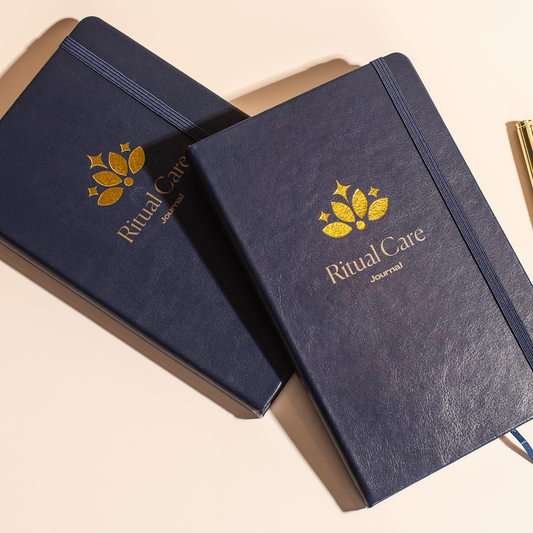A variety of multivitamins are available. You can find everything from chewy tablets and candy-like gummies to freeze-dried and pulverized “real-food supplements.” According to the National Institutes of Health, one-third of Americans take some sort of a daily multivitamin. However, science is still struggling to answer the underlying question: do vitamins make you healthier?
While the idea of vitamin supplementation is attractive, the payoff may not be worth the money you spend.
People tend to obtain sufficient vitamins and minerals from diet alone. While standard multivitamins may help bridge the gap in intakes for a minority of the population with insufficient intakes, they also can contribute excessive amounts of other nutrients above the daily recommended intakes.
With few exceptions, a multivitamin is not recommended for the majority of the American adult and child population.
In 1994, this study was the first to publish findings that vitamin supplementation may increase cancer risk in some of the population. This study found that male smokers who supplemented with beta-carotene (a precursor to vitamin A) had an 18 percent increased risk of developing lung cancer, as well as an 8 percent increase in risk of overall premature death. These findings shocked the scientific community, since beta carotene coming from a diet rich in fruits and vegetables had previously been studied in vitro for decreasing the risk of head and neck cancers.
Calcium, for example, can cause gastrointestinal problems and an increased risk of myocardial infraction. Other supplements have other risks; be sure to check with your healthcare provider before adding to your vitamin and mineral intake.
The name of the game, then, is to eat like you’re the kind of person who would take vitamins.
*Editor’s Note: The information in this article is intended for your educational use only; does not necessarily reflect the opinions of the Chopra Center's Mind-Body Medical Group; and is not a substitute for professional medical advice, diagnosis, or treatment. Always seek the advice of your physician or other qualified health providers with any questions you may have regarding a medical condition and before undertaking any diet, supplement, fitness, or other health program.
While the idea of vitamin supplementation is attractive, the payoff may not be worth the money you spend.
No Overall Benefit to Multivitamins
Taking a daily multivitamin will, in theory, help to provide levels of vitamins and minerals that you may not be able to meet from your diet alone. However, despite many studies, science thus far has not found benefits that outweigh the potential risk of supplementing with either a multivitamin supplement or a single-vitamin.People tend to obtain sufficient vitamins and minerals from diet alone. While standard multivitamins may help bridge the gap in intakes for a minority of the population with insufficient intakes, they also can contribute excessive amounts of other nutrients above the daily recommended intakes.
With few exceptions, a multivitamin is not recommended for the majority of the American adult and child population.
Potential Risks of Taking Vitamins
Beyond multivitamins providing no clear benefit, there is some research that shows that in specific populations, other supplements may actually pose some risk.In 1994, this study was the first to publish findings that vitamin supplementation may increase cancer risk in some of the population. This study found that male smokers who supplemented with beta-carotene (a precursor to vitamin A) had an 18 percent increased risk of developing lung cancer, as well as an 8 percent increase in risk of overall premature death. These findings shocked the scientific community, since beta carotene coming from a diet rich in fruits and vegetables had previously been studied in vitro for decreasing the risk of head and neck cancers.
Calcium, for example, can cause gastrointestinal problems and an increased risk of myocardial infraction. Other supplements have other risks; be sure to check with your healthcare provider before adding to your vitamin and mineral intake.
Those Who Could Benefit from Taking Multivitamins Vitamins
Science does not support the benefit of vitamin supplementation for the general population. This, of course, has exceptions. These unique situations where daily supplementation may be indicated include:- Pregnant women or women wanting to be pregnant
- Breastfed infants
- Individuals unable to take in sufficient nutrition or with poor access to a variety of healthy foods, such as people living in a food desert (urban areas where access to fresh food is nonexistent or minimal, and/or too expensive)
- Individuals with age-related macular degeneration
- Those with vitamin or mineral deficiency, as indicated through blood tests
Focus on Getting Vitamins and Minerals from Food
The best strategy to prevent vitamin and mineral deficiency remains to obtain them from the food you eat. Along with fiber and vitamins, plants feature plant intelligence (when, for example, a plant knows to reach for the sun to accelerate growth) components such as antioxidants, minerals, and flavonoids. These components likely work together in a way that is more effective than any one isolated, pill-encapsulated component. Suffice it to say that the synergistic intelligence of the plant food kingdom goes beyond food that has been freeze dried and put onto a shelf in the form of a supplement.Eat a Nutrient-Rich Diet
One of the best ways to ensure excellent nutrition is to eat a variety of whole foods each day. Food sources rich in vitamins and minerals include:- Fruits: Be sure to include the skins as they often contain important minerals and nutrients (such as the skin on an apple)
- Vegetables: Make sure to eat a wide variety of colors
- Leafy greens: Both raw and cooked
- Whole grains: As described by the Whole Grains Council, the bran, germ, and endosperm all remain intact (have not been processed)
- Eggs: Make sure to eat the yolk
- Legumes (including beans, peas, lentils): They are easy to add to salads and soups
- Nuts and seeds: Focus on variety
Be the Kind of Person Who Would Take Vitamins
While much about the efficacy of a daily multivitamin is unknown, the people who take them religiously tend to be healthier individuals, overall. According to the National Institutes of Health, people who take daily vitamins also practice healthy habits such as eating a variety of fruits and vegetables. Inversely, the very population that does not have a healthy diet and could benefit from additional vitamins and minerals, is less likely to take a daily multivitamin.The name of the game, then, is to eat like you’re the kind of person who would take vitamins.
*Editor’s Note: The information in this article is intended for your educational use only; does not necessarily reflect the opinions of the Chopra Center's Mind-Body Medical Group; and is not a substitute for professional medical advice, diagnosis, or treatment. Always seek the advice of your physician or other qualified health providers with any questions you may have regarding a medical condition and before undertaking any diet, supplement, fitness, or other health program.






















